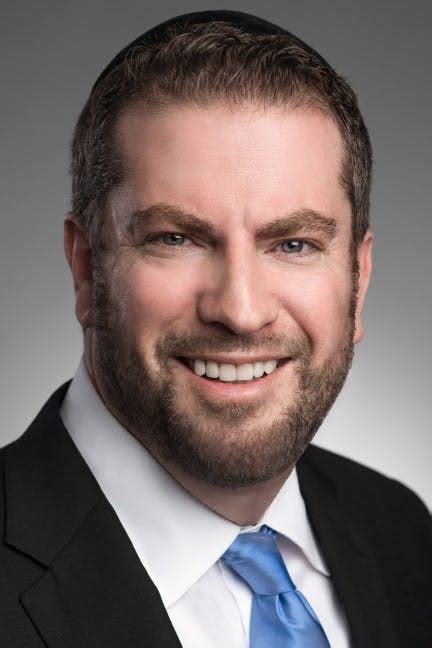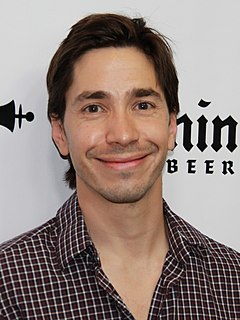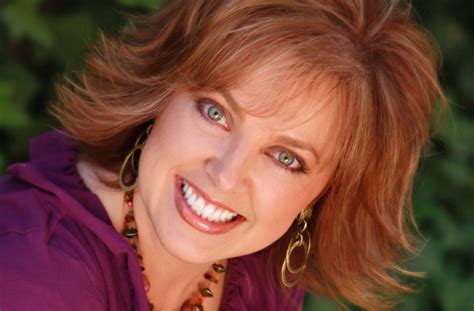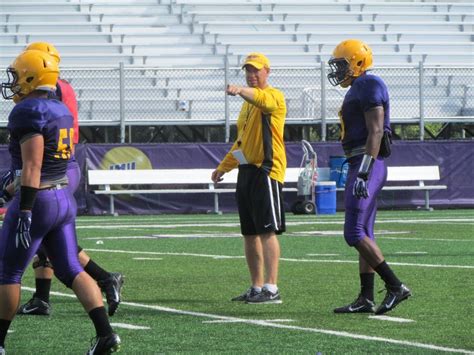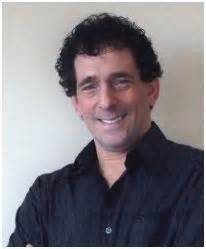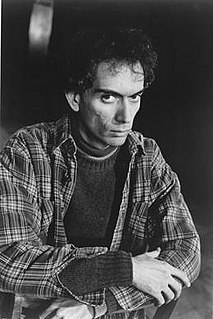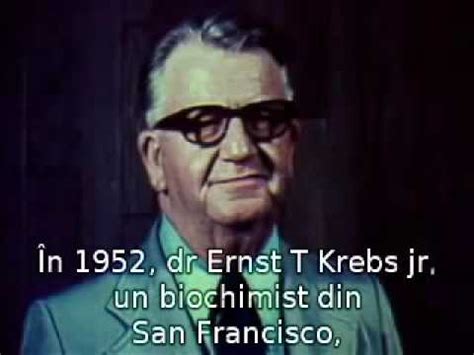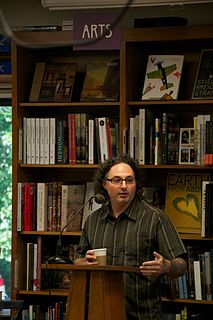Top 1124 Therapy Quotes & Sayings - Page 19
Explore popular Therapy quotes.
Last updated on November 8, 2024.
The fields of clinical psychology and psychiatry exist specifically to help the emotionally unstable become more stable and lead happier, healthier lives. Unlike in the eras of Vincent Van Gogh and Abraham Lincoln, there is now professional help available for those who suffer from emotional illness. Treatment may require therapy or even medication, but hope is now available every single day in practically every city in the civilized world.
Trying to tell an authentic, raw and honest story without making it therapy. Separating myself enough to have perspective while putting myself in the emotional hot seat so that I could make this thing real. Asking for help. Delegating responsibility. Standing up for myself. Fighting the impulse to be sweet and likeable 24/7. Being open to all ideas, but staying true to the spine of the story. Knowing when to let go and when to hold on and fight like hell. Getting out of my own way. Shall I go on?
I never want to feel complacent, and I had started to, a little bit. I had started to feel like "I have this thing I can do, it's worked a few times," but not only does that get boring, but you feel stagnant and unproductive. So I was feeling a lack of creativity and motivation, so I started making a more conscious choice to grow personally. It wasn't even an image-conscious thing, like, "I don't want people to think this way about me." It was really just a way to keep myself energized and feel excited about this thing I love doing. Like I went to couples therapy or something.
By connecting with one's Divine Self, Carol Whitaker has captured the essence of transformation from within. Like a diet for the mind, Ridiculously Happy! guides you on a spiritual journey allowing you to harness the power of the mind, body and spirit to achieve a level of mental and physical wellness one may not have thought possible. I'm a big fan of energy therapy and love that Carol shares the EFT tapping technique which anyone can quickly and easily use to find peace and healing in their lives. This book is a must have!
Acting for me is liberating. It's almost like therapy, because I grew up in a blue-collar environment where you're not supposed to have feelings. So it's freeing to be in a safe place like a TV or film set where you discover feelings, and where you're supposed to be open and honest with everybody while exposing the weakest parts of you. And then when people congratulate you on revealing the weakest part of who you are, then you start realizing that that might not be weakness. It might be a different kind of strength.
One reason patients are reluctant to work in a therapy group is they fear that things will go too far, that the powerful therapist or the collective group might coerce them to lose control--to say or think or feel things that will be catastrophic. The therapist can make the group feel safer by allowing each patient to set his or her limits and by emphasizing the patient's control over every interaction.
Schizophrenia --its nature, etiology, and the kind of therapy to use for it--remains one of the most puzzling of the mental illnesses. The theory of schizophrenia presented here is based on communications analysis, and specifically on the Theory of Logical Types. From this theory and from observations of schizophrenic patients is derived a description, and the necessary conditions for, a situation called the "double bind"--a situation in which no matter what a person does, he "can't win." It is hypothesized that a person caught in the double bind may develop schizophrenic symptoms
Experiencing a massage therapy session is its own best advertisement for changing perceptions. A recent national consumer survey found Americans had overwhelmingly positive feelings about their massage experience. Ninety-four percent express favorable feelings. Fully 85 percent expressed very favorable feelings about their most recent massage, with 37 percent rating it a perfect ten-out-of-ten. What is striking is that there are very few detractors. Most of those who haven't yet received a massage simply haven't felt a need for it
Milton Erickson was a master at using experiential techniques to elicit strengths that were previously dormant. Mills and Crowley have masterfully captured essential elements of Erickson's work and applied it to therapy with children. Easy to read, meticulously referenced, and filled with inspiring case studies, Therapeutic Metaphors for Children and the Child Within has now been updated with important new findings, and it's essential reading for clinicians who work with children as well as for those who want to improve their use of therapeutic metaphor.
When you are a screwed up person, you have a responsibility to keep your normal friends from getting walked on. 'Cos, how bad could you screw that up ? And don't say, Well, you could cause someone six months of physical therapy. 'Cos, hey, lots of times, those exercise take places in pools and nylon tents with little plastic balls. Fun places like that. And, she gets to park up really close for a while. Ha ha, oh, I'm the bad guy.
I've had a pretty crazy life. It's colorful ... reliving some of those closets that I had shut, locked and thrown away the key intentionally because it was painful to revisit a lot of those places - especially the loss of my buddy Robbie Tooley, the divorce of my parents, some of the things I went through as a kid, a lot of that stuff was locked up for a reason - it was painful. But at the same time, there was some therapy in revisiting some of those spots.
But perhaps the most important difference between conservatives and liberals can be found in the area of national security. Conservatives saw the savagery of 9/11 and the attacks and prepared for war; liberals saw the savagery of the 9/11 attacks and wanted to prepare indictments and offer therapy and understanding for our attackers. In the wake of 9/11, conservatives believed it was time to unleash the might and power of the United States military against the Taliban.
In my life I have had to work through problems of stigmatization and prejudice. When I discovered the power of the arts to express my pains and joys, it became clear to me that there would be no other way to work through the demons except to fully embrace the process of creation. The work was not personal therapy but had a connection to other peoples' realities. As I grow older and more mature, it becomes clearer to me that personal struggles and conflicts are connected with universal struggles and conflicts. It is this knowledge, ironically, that gives me the freedom to experiment in my work
We read novels because we need stories; we crave them; we can’t live without telling them and hearing them. Stories are how we make sense of our lives and of the world. When we’re distressed and go to therapy, our therapist’s job is to help us tell our story. Life doesn’t come with plots; it’s messy and chaotic; life is one damn, inexplicable thing after another. And we can’t have that. We insist on meaning. And so we tell stories so that our lives make sense.
The strange, wonderful stories of Doctor Olaf van Schuler's Brain introduce us to the tremendously gifted Kirsten Menger-Anderson, a writer whose subject is nothing less than the diagnosis and cure of the human malady. We follow twelve generations of New York City's Steenwycks family through their forays into phrenology, mesmerism, radium therapy and similar misadventures, a historically rich narrative that Menger-Anderson delivers in striking, elegant prose and with a sure eye for detail. This is a remarkable debut by a writer to watch.
I certainly don't mean to leave the impression that anxiety can be waved away with a simple pep talk. In fact, for some, God's healing will include the help of therapy and/or medication. If that's the case, do not for a moment think that you're a second-class citizen of heaven. Ask God to lead you to a qualified counselor or physician who'll provide the treatment you need. This much is sure: It's not God's will that you lead a life of perpetual anxiety. It's not his will that you face every day with dread and trepidation.
Antidepressant medications, you still have some depressive thoughts. Antipsychotic medications, you still have some psychotic symptoms for the vast majority of the people taking them. But it gives them a little separation, and it doesn't control his behavior as much when you have a sad feeling, difficult thought, an odd perceptual experience. We can teach people those exact skills in therapy, you get longer-term benefits and without the side effects. So don't be sold just because a commercial interest wants to sell you things.
An empathic way of being can be learned from empathic persons. Perhaps the most important statement of all is that the ability to be accurately empathic is something which can be developed by training. Therapists, parents and teachers can be helped to become empathic. This is especially likely to occur if their teachers and supervisors are themselves individuals of sensitive understanding. It is most encouraging to know that this subtle, elusive quality, of utmost importance in therapy, is not something one is "born with", but can be learned, and learned most rapidly in an empathic climate.
I don't think the people today who start hearing voices, stop eating and sleeping, and run amuck are likely to get good treatment. Having more knowledge, better diagnostic capabilities, better medications with fewer side effects, can't make up for the fact that most patients are being treated by doctors, therapists, and hospitals, who are operating under constraints and incentives that reward non-treatment, non-hospitalization, non-therapy, non-follow-up, non-care. Lost to follow-up is the best outcome a health insurer can hope for.
Either it is true that a medicine works or it isn't. It cannot be false in the ordinary sense but true in some alternative sense. If a therapy or treatment is anything more than a placebo, properly conducted double-blind trials, statistically analyzed, will eventually bring it through with flying colours. Many candidates for recognition as orthodox medicines fail the test and are summarily dropped. The alternative label should not (though, alas, it does) provide immunity from the same fate.
The slight variations in extracting procedure cause many of the amygdalin (Vitamin B-17, Laetrile) molecules to change to a form unknown to nature(:) isomers...There are ...purveyors who label their 'iso-amygdalin' products 'amygdalin' contrary to all of the recognized specs...For commercial or political purposes, they certainly cannot justify such a fallacy...This scientific heresy and commercial fraud...(is) tremendously reducing the effectiveness of amygdalin therapy. ...To mislabel iso-amygdalin as amygdalin is scientifically, medically, and morally indefensible.
There's about 100 different cancers in a cancer cell. And so what we're finding out is, they're finding out ways to deal with one or two of the cancers there, with certain medicines. But they don't know why, if you have that cancer and I have that cancer, and I get the therapy and you get it, I don't live and you live. That - they don't know why.
The second item in the liberal creed, after self-righteousness, is unaccountability. Liberals have invented whole college majors--psychology, sociology, women's studies--to prove that nothing is anybody's fault. No one is fond of taking responsibility for his actions, but consider how much you'd have to hate free will to come up with a political platform that advocates killing unborn babies but not convicted murderers. A callous pragmatist might favor abortion and capital punishment. A devout Christian would sanction neither. But it takes years of therapy to arrive at the liberal view.
You know, these conservative women, somebody really needs to go repossess their ovaries. Really, truly, they have no right to them. They are fabulous, little organs and they have absolutely no right to be estrogen-bearing beings. Okay? Just cut 'em off, let 'em go through the hot flashes, let 'em just sit there and complain about hormone therapy, okay? Just take the ovaries and get it over with. Because they don't deserve to have estrogen. They really don't. It's a privilege.
One Dad I know uses what I call Post-It® Note therapy on his children. He leaves sticky Post-It Notes everywhere ...in their lunch box, inside their shoes, on top of their sandwich before he wraps it up. He once went into his daughter's room, looking for his hammer, and on the back of her bedroom door were every Post-It Note he'd ever given her - over 250 in all with simple messages like 'Great job'...'I love you'...or 'You're special to me.' Do you think that girl knew, without a doubt, that her Dad valued her and loved her?
The Four Noble Truths are pragmatic rather than dogmatic. They suggest a course of action to be followed rather than a set of dogmas to be believed. The four truths are prescriptions for behavior rather than descriptions of reality. The Buddha compares himself to a doctor who offers a course of therapeutic treatment to heal one’s ills. To embark on such a therapy is not designed to bring one any closer to ‘the Truth’ but to enable one’s life to flourish here and now, hopefully leaving a legacy that will continue to have beneficial repercussions after one’s death. (154)
Artemis: (shocked) Why, Doctor? This is a sensitive area. For all you know I could be suffering from depression. Doctor Po: I suppose you could. Is that the case? Artemis: (head in hands) It's my mother, Doctor. Doctor Po: Yes? Artemis: My mother, she... Doctor Po: Your mother, yes? Artemis: She forces me to endure this ridiculous therapy when the school's so-called counsellors are little better than misguided do-gooders with degrees.
If I was feeling angry, I had to investigate not just who or what I was angry at, but why. And then I had to do the hard part and ask myself: Are you justified in where your anger is being directed? So, while I allowed my emotions to be valid, I knew that if I were to use them constructively, in the service of art, then I had to look at them dispassionately. Some might call this therapy, and I suppose it was. But I also had a goal that was larger than just healing myself, which was connecting to an audience.
Good therapy, gently but firmly, moves people out of denial and compartmentalization. It helps clients to develop richer inner lives and greater self-knowledge. It teaches clients to live harmoniously with others and it enhances Existential consciousness, and allows people to take responsibility for their effects on the world at large. For me , happiness is about appreciating what one has. Practically speaking,this means lowering expectations about what is fair, possible and likely. It means,finding pleasure in the ordinary.
I volunteered at UCLA's occupational therapy ward, where there are lots of kids with autism and emotional problems. I just wanted to prove to myself that I could not break down and cry at everything, and that I could just help somebody else. The one thing I really remember was that when we would take them out of the hospital for a walk around campus, they would freak out the most when we were waiting for the elevator. I remember the guy at the elevator said to himself, "Transitions are the hardest." And I said to myself, "Transitions are always the hardest."
Divorce is the hardest obstacle I've had to overcome in my life. I would like to believe that most people don't get married anticipating divorce. When I reached that crossroad, I felt like such a failure. After years of therapy together, I realized that staying together was emotionally destructive. My husband didn't want the divorce, but I did. So there was a lot of bitterness initially. Although we are still divorced, we still call each other "family." It was a journey to get there, but it's a beautiful place to be.
Two things were falling apart, my personal life, my professional life. And I realized that all those things were supposed to make me happy, but nothing could fill me up except myself. So I went into analysis. I went to see a doctor, to talk about my lack of self-esteem. I don't know how to say it better: my lack of self-esteem, my insecurity, and how these things were not going to fill me up. And I'd better fix myself and then find out what I liked. For me, therapy was the greatest gift I could ever give myself. There's nothing I could have done for myself that would've been better.
It's like aversion therapy. You keep doing scenes over and over again with three women in the bed with you, and we had to do them all in one week. Three girls would step out and another three girls would step into the bed. It sounds like a fantasy but by the end of it, I just wanted to go for a hike on my own in the north of England, in the hills. Because it became a sort of "be careful what you wish for" kinda thing.
I think one possibility [in the future] might be chemotherapy. And I'm always hesitant to say that because it makes it sound like I'm against chemotherapy. Right now, chemotherapy is the best cancer treatment therapy we have. But let's say we find some way where we can almost genetically engineer the DNA of our being and fight cancer that way. Then, the idea that we used to pump poison into people to fight off cancer will almost seem like the use of leeches or something.
It doesn’t matter how many years go by, how much therapy I embark on, how much I try to achieve that elusive thing known as perspective, which is supposed to put all past wrongs into their rightful and diminished place, that happy place where all the talk is of lessons learned and inner peace. No one will ever understand the potency of my memories, which are so solid and vivid that I don’t need a psychiatrist to tell me they are driving me crazy. My subconscious has not buried them, my superego has not restrained them. They are front and center, they are going on right now.
It is not a sudden leap from sick to well. It is a slow, strange meander from sick to mostly well. The misconception that eating disorders are a medical disease in the traditional sense is not helpful here. There is no 'cure'. A pill will not fix it, though it may help. Ditto therapy, ditto food, ditto endless support from family and friends. You fix it yourself. It is the hardest thing that I have ever done, and I found myself stronger for doing it. Much stronger.
Jealousy always has been my cross, the weakness and woundedness in me that has most often caused me to feel ugly and unlovable, like the Bad Seed. I’ve had many years of recovery and therapy, years filled with intimate and devoted friendships, yet I still struggle. I know that when someone gets a big slice of pie, it doesn’t mean there’s less for me. In fact, I know that there isn’t even a pie, that there’s plenty to go around, enough food and love and air. But I don’t believe it for a second. I secretly believe there’s a pie. I will go to my grave brandishing my fork.
I see a Reiki healer from time to time. She sits on my bed, and I lie in her lap. She puts her hands on me for about 45 minutes, and she reads my energy. Whenever I'm having a hard time, I call her. I also go to weekly therapy, and that has been invaluable. Also, getting on medication for my 'neural atypicalities,' I guess we might call them.
Yes, you make yourself useful, angel boy. Meanwhile, I’ll be in the bathroom.” William’s jet-black hair was dripping wet and plastered to his face. There was a fluffy white towel wrapped around his waist, displaying muscles that rivaled Paris’s own, and a tattooed treasure map that led to his man junk. Looking at his, you could see the makings of a temper so savage anyone who miraculously survived an encounter with him would end up needing therapy. And diapers. “I’ve got to finish deep conditioning my hair.” Or maybe not so savage.
You know, I think everybody I've seen has come from some other therapy, and almost invariably it's very much the same thing: the therapist is too disinterested, a little too aloof, a little too inactive. They're not really interested in the person, he doesn't relate to the person. All these things I've written so much about. That's why I've made such a practice really, over and over to hammer home the point of self-revelation and being more of yourself and showing yourself. Every book I write I want to get that in there.
I think that there is a tragic misfit at the core of me, and I've just done a lot of work on myself. I love a good self-help book; I've read a ton of them. I love self-help seminars and therapy and all that. I think that probably, at my core, if I had done no work on myself, I would probably be Laura from The Mysteries Of Laura, but I worked hard to be a more stable person because that's what I wanted out of my life.
When it became easy enough to do dairy online, then I just thought, "Oh, I'll start doing this. I'll put the parts online that aren't going to get me in trouble. I'll save the rest for myself." It became also this kind of self-therapy. I could write about stuff that was bothering me, or personal stuff. And the very personal stuff I could edit out. But it was kind of the catharsis of getting it out and writing about it, that made me think, "Okay, I see why people do this, why they keep these diaries." So I thought, "Well, let's see what happens when I post some of it."
